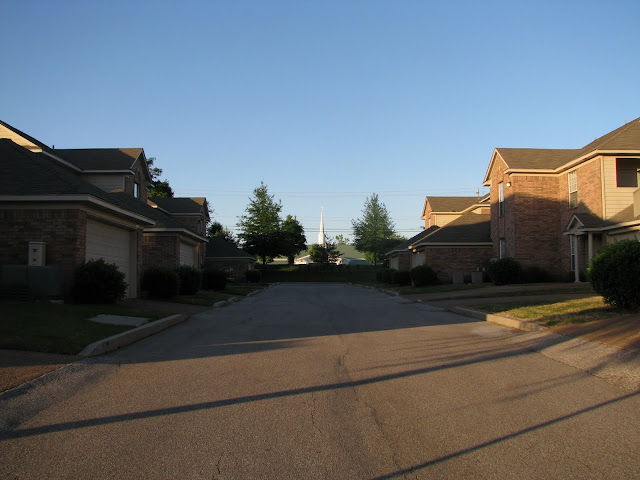Suburbanization and the American dream, after World War II, introduced the Americans into the world of owning a house in the suburbs, the so-called 'best of both worlds' allowing seclusion from the chaos of a city with proximity to nature. It not only encouraged planning of urban landscapes in favour of the 'automobile' but also drew hard lines on the landscape dividing societies in terms of income, colour, etc., for example, as Clinton termed the 'chocolate cities and its vanilla suburbs' for whites and blacks!! So why exactly did the Americans fall for suburbanization? How could they believe that they would have the harmonious balance between the city and the rural setting? Is it so hard to see that they are not just missing the life and action of the city but also being fooled by the fake facade of natural beauty? The people who develop and live in suburbs are essentially just intruders and destroyers of the natural ecosystems that would have otherwise existed on that land.
On a personal level, Cordova, Tennessee has been my first ever experience of living in a suburb. As a student of Urban Design I had read profusely about the downturn of the American cities due to suburbanization, and yet residing in one of these suburbs has been a meaningful experience. Four months of living in one of the 'luxurious' American neighbourhoods has rendered me isolated and devoid of all opportunities of exercising the social being in myself. Ironically, suburbs were designed and marketed as the best places for community living and social interaction! The truth is that one would have to either be walking a dog or getting robbed to have the least human interaction here. The lack of activity outside the four walls of your home leaves one wondering if there are any neighbours after all.
Camden Grove, one of the fenced residential neighbourhoods in Cordova, has an eerie silence to it all the time, be it morning, evening, summer or winter. The inner streets, designed big enough to hold huge fire trucks are more or less like one of the highway roads devoid of pedestrian pavements or cycle tracks. These streets are fairly monotonous with the mirrored/copied match-boxes-like residences lining them and are intended only to serve the automobile with the occasional stop signs and street name boards. Unlike in the city, even waste disposal or collecting one's post becomes a hard task without the service of an automobile. The design of the residential block is even more remarkable; one block has 8 residential apartments the entrances of which face eight different directions so much so that you would never have to cross your neighbours any day. This basic residential block is duplicated as many number of times as required creating copies arranged without any structure in the layout. Finding one's way for a first-timer is more than a horrendous experience combined with confusion between these same buildings just with different numbers.
So, why would one chose to live in a suburb? For a normal human being, a suburb offers only confusion, loneliness, insecurity and detachment. I would rather live in the midst of the noise and action of a city and go trekking or camping once in a while to re-establish my roots with nature, than live in a suburb. I would rather allow the natural ecosystems to exist in their natural habitats than destroy, threaten and endanger them. I would rather have a Black/Hispanic/Asian/American/European/poor/rich neighbour than have no neighbours at all. I would rather have small walkable streets where I can meet a few people than have no pedestrian pavements at all. I would rather hear cars honking, people shouting and children laughing on the streets than the prevailing silence within the suburb. I would rather be a social human being than the isolated privileged suburban dweller!


What do you have say about the luxury of space in US? What would you have to say about utilizing the vast spaces in the US?
ReplyDeletewell renji i m not so used to the suburban culture, so i cant really say anything unless i experience it for myself...
ReplyDeleteanyways it seems like an example of how a vision contradicts with reality...the designer's intention of providing for privacy has disrupted the foundation of social interaction..!
Hey.. Thanks for posting comments.
ReplyDelete@ Pratap: The availability of land in any country is a luxurious resource that has to be utilized efficiently and not wasted by planning and design practices that do not favour anybody.
@ d.dzinz: I agree totally. I think a good design is all about harmony and balance. There is no right or wrong, it's all relative and one has to experience it to make a judgement call. However, my stay in a suburb gave me a few insights.